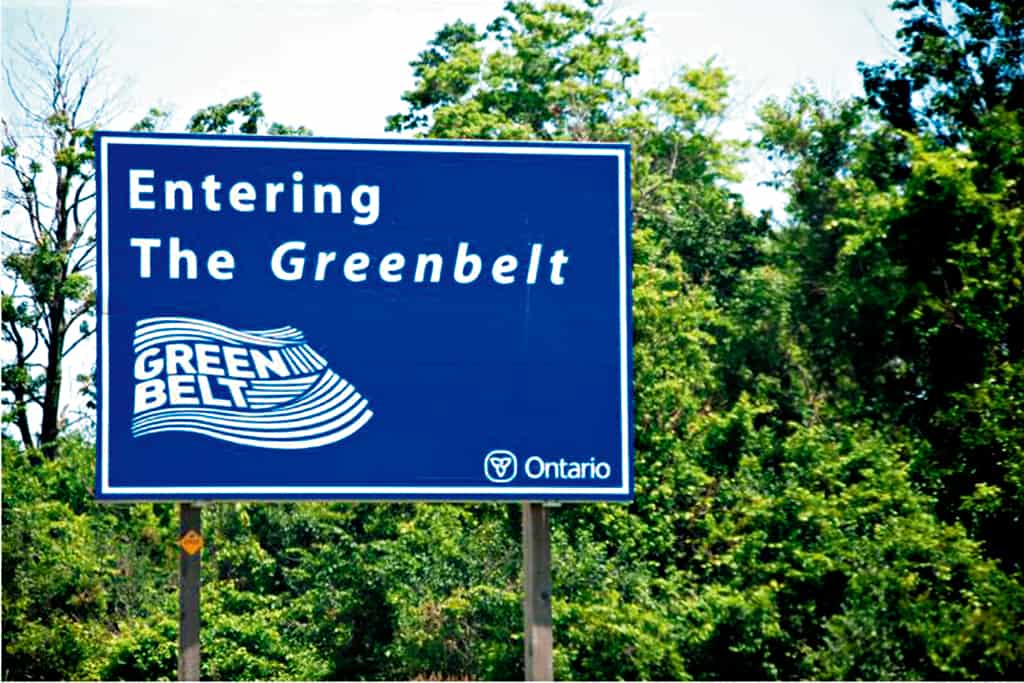McConkey wants to add greenbelt objection to Tuesday’s inaugural Oshawa Council meeting
Published November 14, 2022 at 10:18 am

With Oshawa “more than well positioned to accommodate growth” councillor Rosemary McConkey will try to get support for a motion objecting to the provincial government’s proposed changes to the greenbelt at Tuesday’s inaugural meeting of the new term.
With Ontario’s population expected to grow by more than two million over the next ten years the Conservative government declared it was going to “remove and redesignate” 7,400 acres from the greenbelt area and turn them into 50,000 new housing units.
Queen’s Park is considering the deal a “swap” that will actually increase the greenbelt to 9,400 by adding lands, mostly from the Paris Galt Moraine.
But opponents believe that claim is disingenuous at best, as many of the parcels of land being added were already off limits for development or simply not desired by developers.

Oshawa Councillor Rosemary McConkey
“With the City of Oshawa already immersed in mega development projects in North Kedron and Columbus for over 50,000 people … Oshawa is more than well positioned to accommodate growth,” McConkey said.
Oshawa was not included among the 15 plots of land being removed from the greenbelt though there were three properties in Durham, including a large portion of greenbelt in Pickering south of Hwy 407, west of West Duffins Creek and north of the CP Bellville train line. The other two plots are in Ajax (765 and 775 Kingston Rd. E) and Clarington (north-east corner of Nash Road and Hancock Road).
Phil Pothen, Ontario Environment Program Manager, Environmental Defence, said the deal breaks an election promise not to touch the greenbelt and would end the “critical role” the lands play in stopping sprawl and protecting farmlands, forests and Ontario’s drinking water.
“The government should be ashamed and the people of Ontario should be outraged,” Pothen said in a statement.
“Ontario government efforts to take land out of the Greenbelt are premised on an assertion that this land is urgently needed to address the housing affordability crisis. This is untrue. The evidence is clear. There is more than enough land already set aside for development within existing town and city boundaries to meet the demand for all types of housing and businesses until far past 2040.”
Pothen said there is such a “vast supply” of unused greenfield land already open for development withing existing municipal boundaries that opening up Greenbelt lands “will not deliver a single net new home” and because of a constrained supply of skilled labour, materials and equipment “it is likely this plan would result in fewer homes being delivered within the next decade.”
The Ministry of Municipal Affairs and Housing is seeking feedback on the proposed changes, with public comments accepted until December 4.
McConkey said it is important to get this time sensitive motion on the council floor as quickly as possible as the earliest council meeting after the first Development Services committee meeting – where such a motion would normally see first light – is not until December 12 – after the deadline.
“Removing land from the permanent Greenbelt will have lasting repercussions, having the effect of leaving Greenbelt lands no longer any more protected than land outside once the fragmentation begins, as well as leading to unbalanced growth, missing long-term sustainable vision and infrastructure asset costs, as well as being seriously detrimental to the agricultural land base and Ontario’s natural heritage, protected headwater resources and health ecosystem,” she said.
McConkey will be the focus of another item on Tuesday’s agenda as Theresa Corless, a former Durham Catholic District School Board Chair who lost to McConkey in last month’s election by just eight votes, has asked Council to support a recount.
INdurham's Editorial Standards and Policies




